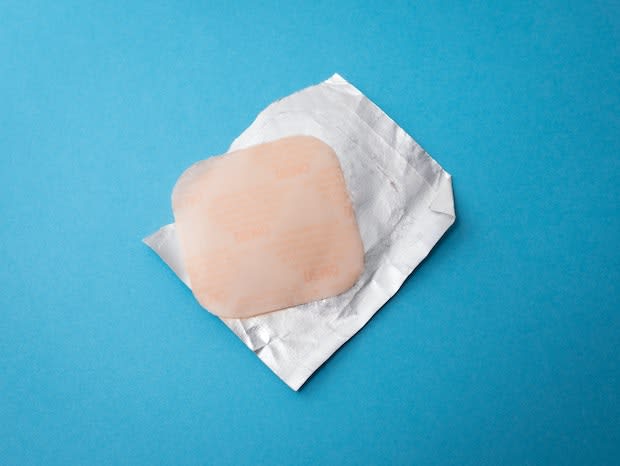Table of Contents
I. Understanding Hormone Replacement Therapy
IV. Take Your Medication Correctly
Understanding Hormone Replacement Therapy
Hormone replacement therapy is commonly used for women experiencing menopause symptoms. A lack of hormones can occur for many reasons but is most common when a female’s menstrual cycle stops, and pregnancy is no longer possible. Estrogen is responsible for many female body processes, including menstrual cycles, bone growth, and metabolism. When estrogen slows down, several unpleasant symptoms occur, including:
- Mood swings
- Breast tenderness
- Irregular or absent periods
- Painful sex
- Depression
- Trouble concentrating
- An increase in urinary tract infections (UTIs) [1]
If you are experiencing these symptoms, your doctor may recommend Estraderm (estradiol), Climara (estradiol), and Prometrium (progesterone). These hormone replacement drugs can help you maintain a healthy lifestyle. Like every medication, there are often side effects of hormone replacement therapy. Usually, a woman and her doctor found that the benefits outweigh the risks.
The long-term side effects of hormone therapy differ from woman to woman, but side effects can include constipation, increased intensity of menopausal symptoms, nausea, weight gain, and mood swings. Read on to learn more about how to reduce the side effects of hormone replacement therapy. [2]
Hormones like estrogen and progesterone are produced in the ovaries. These hormones play a leading role in metabolism and nutrition. Female hormones are responsible for the location of fat on the body and assists in the metabolization of sugar and fat. When these hormones are in balance, the metabolism is working correctly, but it slows as women age and estrogen levels dip. Women may develop extra fat around the middle when they enter menopause. Unfortunately, there is no way you can alter your fat placement, but you can increase your physical activity. [3] A daily exercise routine of 20 to 30 minutes can help shift extra pounds when you begin hormone replacement therapy (HRT). When you burn sugar as fuel, lactic acid is released and metabolic stimulants assist in the proper functioning of the metabolism. You may want to talk to your healthcare provider to discuss a weight management program if you don’t know where to start your health journey. Exercising is also essential to bone health. When estrogen is low, bones may become porous and increase the risk of osteoporosis and fractures. Keeping your muscles toned and healthy can reduce the risk of broken bones and osteoporosis. Recommended exercises can include: Eating clean can significantly increase the efficiency of your new hormone replacement therapy. HRT can improve your hormone-related problems, but lifestyle changes are necessary in getting your life back to a happy and healthy place. It isn't easy to reconstruct your diet habits, and it takes a lot of self-discipline and dedication to see results. When starting your diet plan, making healthy switches is an easy way to glide into new eating habits. You can substitute white bread for whole wheat bread, white potatoes for sweet potatoes, and white rice for brown rice. These subtle changes can cut calories and eliminate unnecessary carbohydrates. It is also important to implement healthy proteins in your meals, so you feel fuller longer. These proteins may include tofu, eggs, chicken, turkey, and fish. Every healthy meal should include lots and lots of vegetables. Veggies rich in vitamins and minerals include: It would help if you tried to eat smaller meals every 3-4 hours instead of the traditional three meals a day. Smaller meals keep your body continuously burning calories and can help speed up your metabolism. Dieticians recommend not eating past 8 pm, so your glycemic index doesn't elevate and cause you to store fat while you sleep. [5] When you are taking HRT, you may notice bouts of indigestion and acid reflux symptoms. As your hormone therapy works through your body, lowering estrogen levels can cause stomach problems. Menopausal digestive problems include constipation, bloating, and indigestion. When taking medications like Estraderm (estradiol) and Climara (estradiol), doctors advise patients to take them with food to avoid upset stomach or acid reflux. If you want to limit your indigestion problems while taking hormone replacement drugs, you can: Full menopause is reached when a woman does not experience a menstrual period for a whole calendar year. You may experience symptoms of menopause before you have fully reached this stage. This period is called perimenopause. As female hormones dip, you can experience irregular vaginal spotting or bleeding. If you begin hormone replacement therapy after you have reached full menopause, you still may have light bleeding or bleeding that appears as a normal period. This may occur because a lack of estrogen thins the lining of the vagina and uterus. This bleeding is usually normal and goes away over time, but it is important to see your doctor if the bleeding begins to concern you. This bleeding can occur randomly, so it is essential to be prepared for these events. If you begin to experience bleeding episodes, you should try to keep sanitary pads or panty liners in your purse and fully stocked in your restroom. These liners can help reduce accidents and allow you to lead an uninterrupted life. [6] The content provided in this article is based on thorough research and in some cases, reviewed by a medical professional. Our goal for the information is to provide helpful, general health informational. It is not intended as a substitute for professional medical advice.
Regular Exercise
Watch Your Diet

Take Your Medication Correctly
Be Prepared

